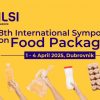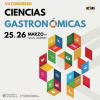The CIRCALGAE project is revolutionizing the use of marine biomass, transforming waste into valuable ingredients with bioactive properties. Instead of discarding residues from species like Phaeodactylum tricornutum and spirulina, they are being used to extract proteins that can be incorporated into food, cosmetics, and animal feed products.
This waste-utilization approach not only reduces waste but also opens new opportunities to create sustainable alternatives. Extracting proteins from residual biomass from the industry is showing great potential, offering more natural and eco-friendly solutions.
The extracts obtained are not only nutritious but also possess functional characteristics that can enhance the quality of the products in which they are applied. For example, in the food industry, these proteins could serve as a healthier, more environmentally friendly alternative to animal-based proteins. In cosmetics, these extracts provide bioactive benefits, paving the way for the creation of more natural and effective products.
Another important aspect of the project is studying the digestibility of these ingredients, which is crucial for ensuring that the body can properly absorb and utilize the nutrients. This is where the INFOGEST method comes into play. This method simulates the complete digestive process, breaking it down into three key phases: the oral, gastric, and intestinal stages. By replicating what happens in the human digestive system, researchers can closely monitor how these marine protein extracts behave at each stage—starting from the moment they enter the mouth, through the breakdown of food in the stomach, and finally to the nutrient absorption that takes place in the intestines.
Understanding how well these proteins are digested and absorbed is essential, as it impacts their nutritional value and overall effectiveness when used in food products. For plant-based proteins like those extracted from marine biomass, it’s especially important to evaluate how they compare to traditional animal proteins in terms of bioavailability. This research not only ensures that these ingredients are safe and beneficial for human consumption but also helps optimize their use in developing new, sustainable food products. By fully understanding the digestive process, CIRCALGAE aims to create plant-based ingredients that are not only environmentally friendly but also nutritionally comparable to conventional sources.
This work has been done in collaboration with TEAGASC.
Note written by Josep Biosca.









